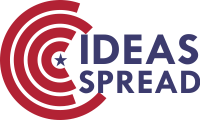Curriculum Ideology and Politics in High School English Reading Classes: A Case Study of Unit 4 in PEP Compulsory English Book 2
Abstract
Based on the perspective of disciplinary core literacy, this paper explores the practical integration of curriculum ideology and politics (CIP) in high school English reading and thinking classes. It first analyzes the theoretical significance of combining CIP with the cultivation of English core competencies—language ability, learning strategies, cultural awareness, and thinking quality—highlighting how this integration promotes students’ comprehensive development and value formation. Taking the Reading & Thinking section of Unit 4 in Required English Book 2 by People’s Education Press as a case study, the paper proposes teaching strategies including precise goal setting, in-depth mining of ideological and political elements in textbooks, and embedding value guidance throughout the teaching process. The practice demonstrates that these strategies effectively realize the organic fusion of disciplinary literacy and CIP, enhancing both students’ language skills and moral qualities, and advancing the educational mission of fostering well-rounded talents with international vision and social responsibility in high school English education. This study offers practical examples for English teachers to implement CIP and enriches the theoretical and practical framework of curriculum ideology and politics in language teaching.
References
[2] Li, H., & Lu, C. (2020). “Curriculum ideology and politics” research: Overview and prospect. Journal of Fujian Institute of Education, (01), 10–14+129.
[3] Ma, M., & Chen, P. (2023). Analysis of the status quo, hotspots and frontiers of curriculum-based values education in foreign language teaching and studies. Journal of Shandong Normal University, (4), 149–156.
[4] Wen, Q. (2021). A framework of integrating moral education into college foreign language teaching. Foreign Languages in China, (2), 47–52.
[5] Wang, M., & Wang, B. (2019). Zeal in observation, prudence in thought: The imperative of integrating ideology and politics into the curriculum for the new era. Education Exploration, (1), 102–107.
[6] Xia, J., & Ji, F. (2023). Connotation and practical framework of English curriculum for ideological and political education under new curriculum standards. Curriculum, Teaching Material, and Method, (11), 124–129.
[7] Zhang, S. (2019, March 19). President Xi Jinping hosts faculty symposium on ideological and political theory education. People’s Daily, p. 1.
[8] Zhao, J. (2019). Curriculum-based ideological and political education: Connotations, concepts, issues, and solutions. Journal of Hubei University of Economics, (02), 114–119.

This work is licensed under a Creative Commons Attribution 4.0 International License.
Copyright for this article is retained by the author(s), with first publication rights granted to the journal.
This is an open-access article distributed under the terms and conditions of the Creative Commons Attribution license (http://creativecommons.org/licenses/by/4.0/).








1.png)

















